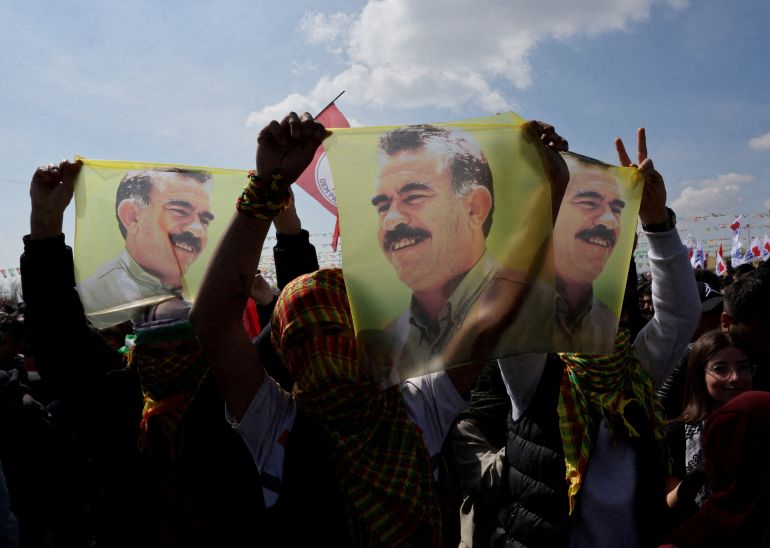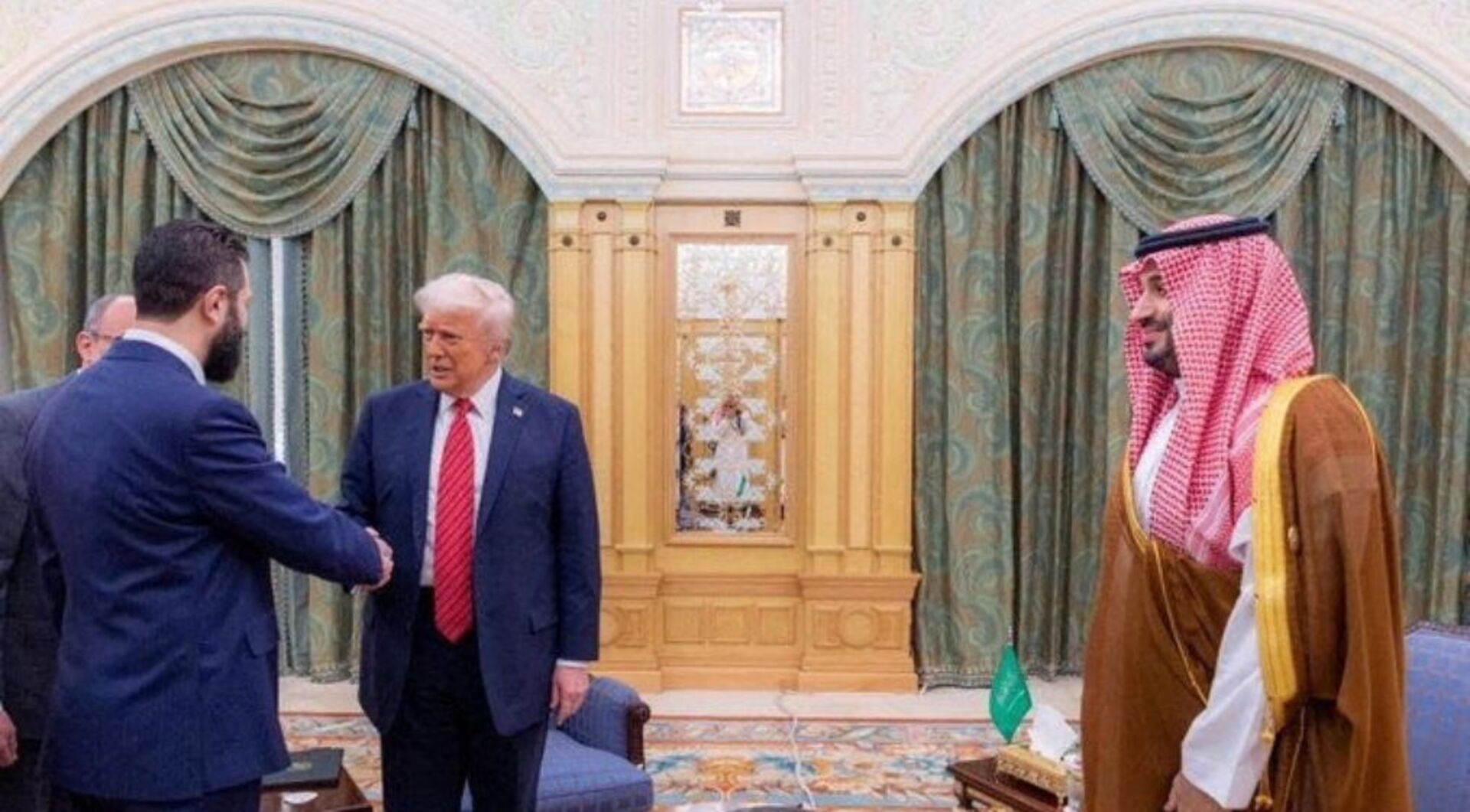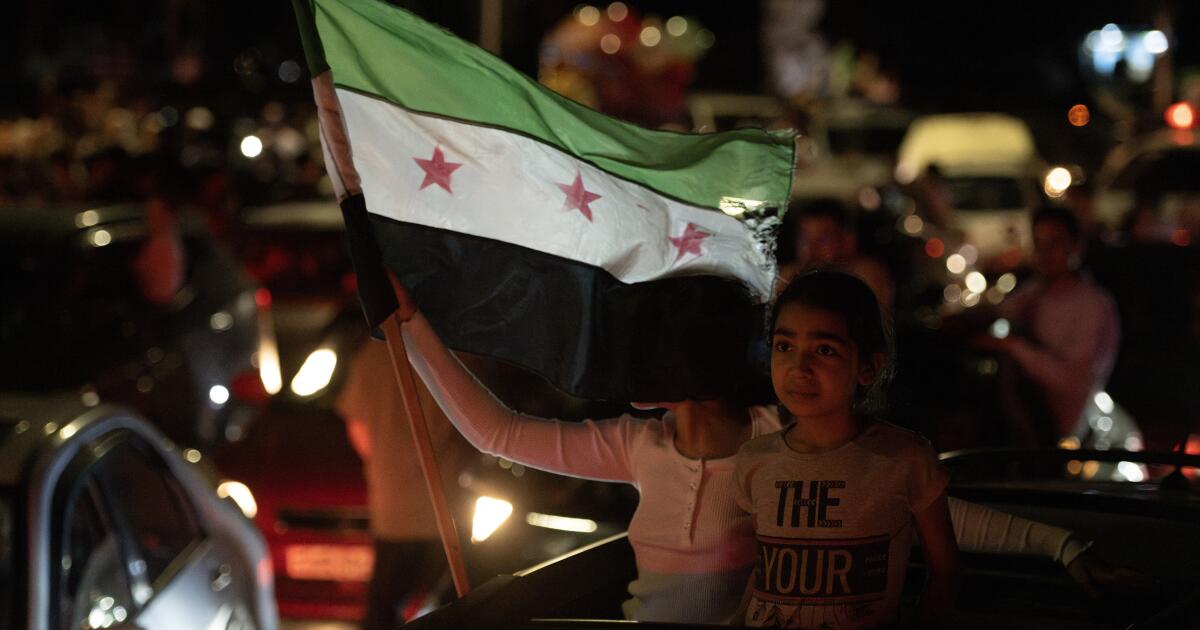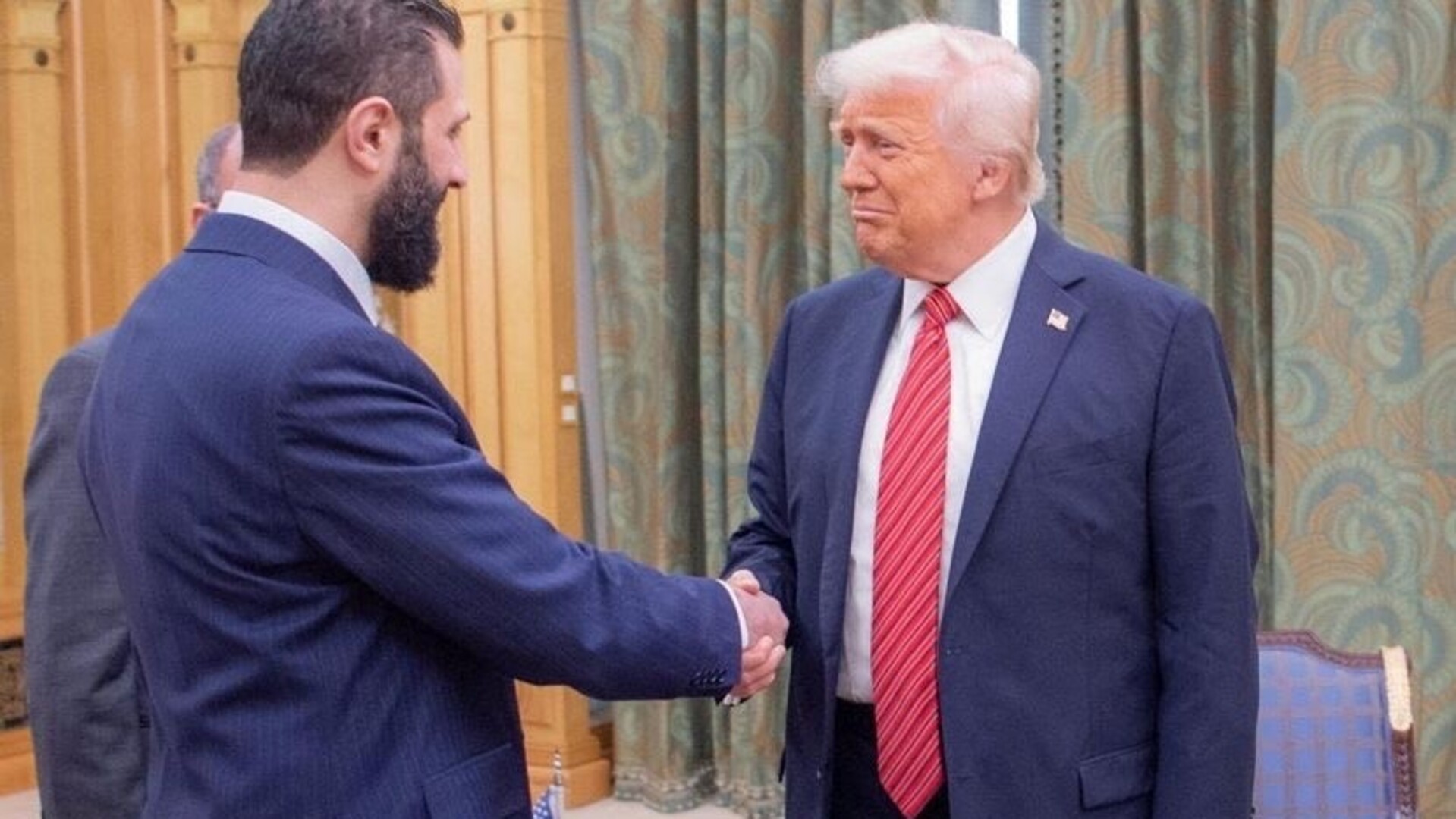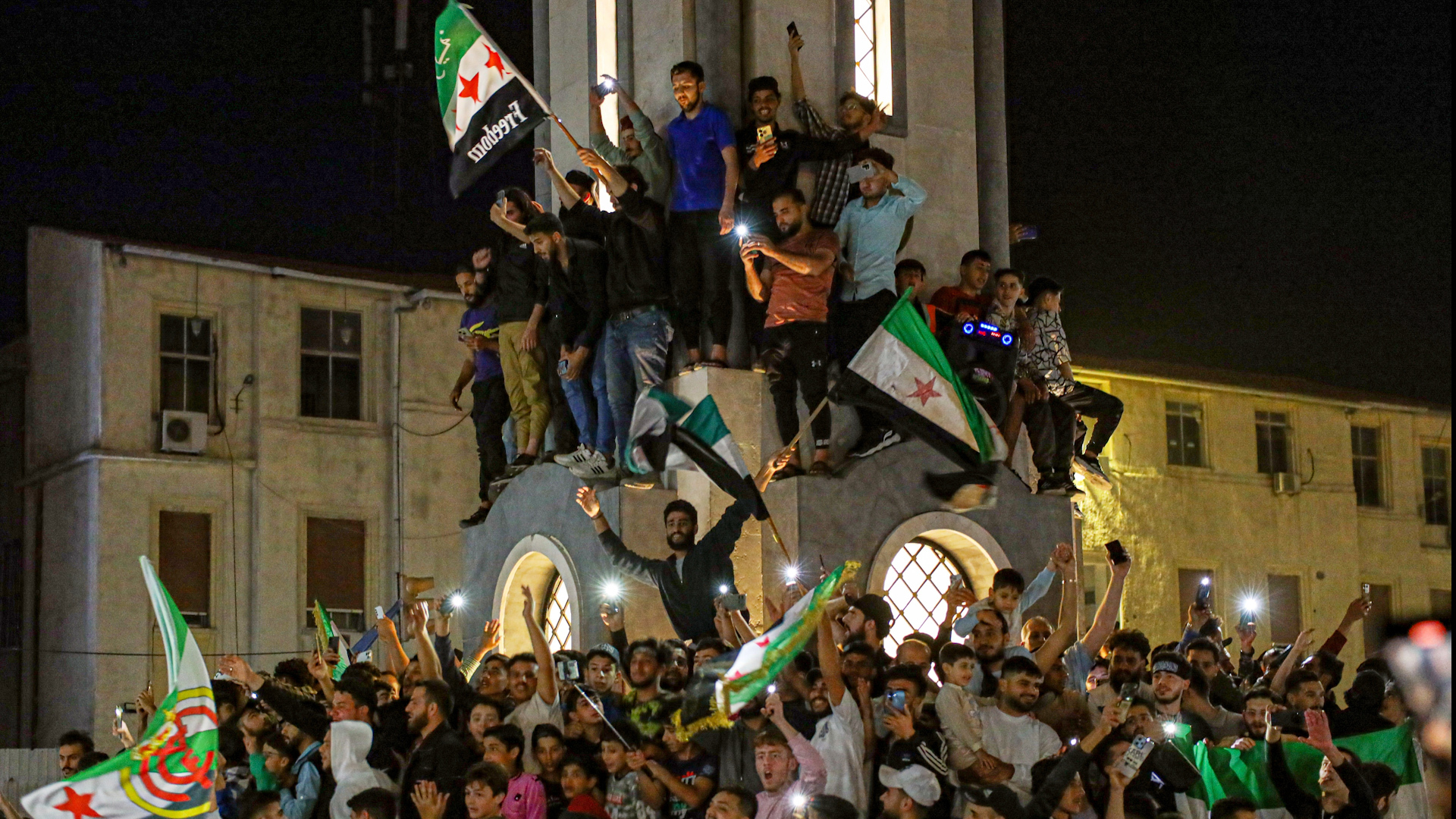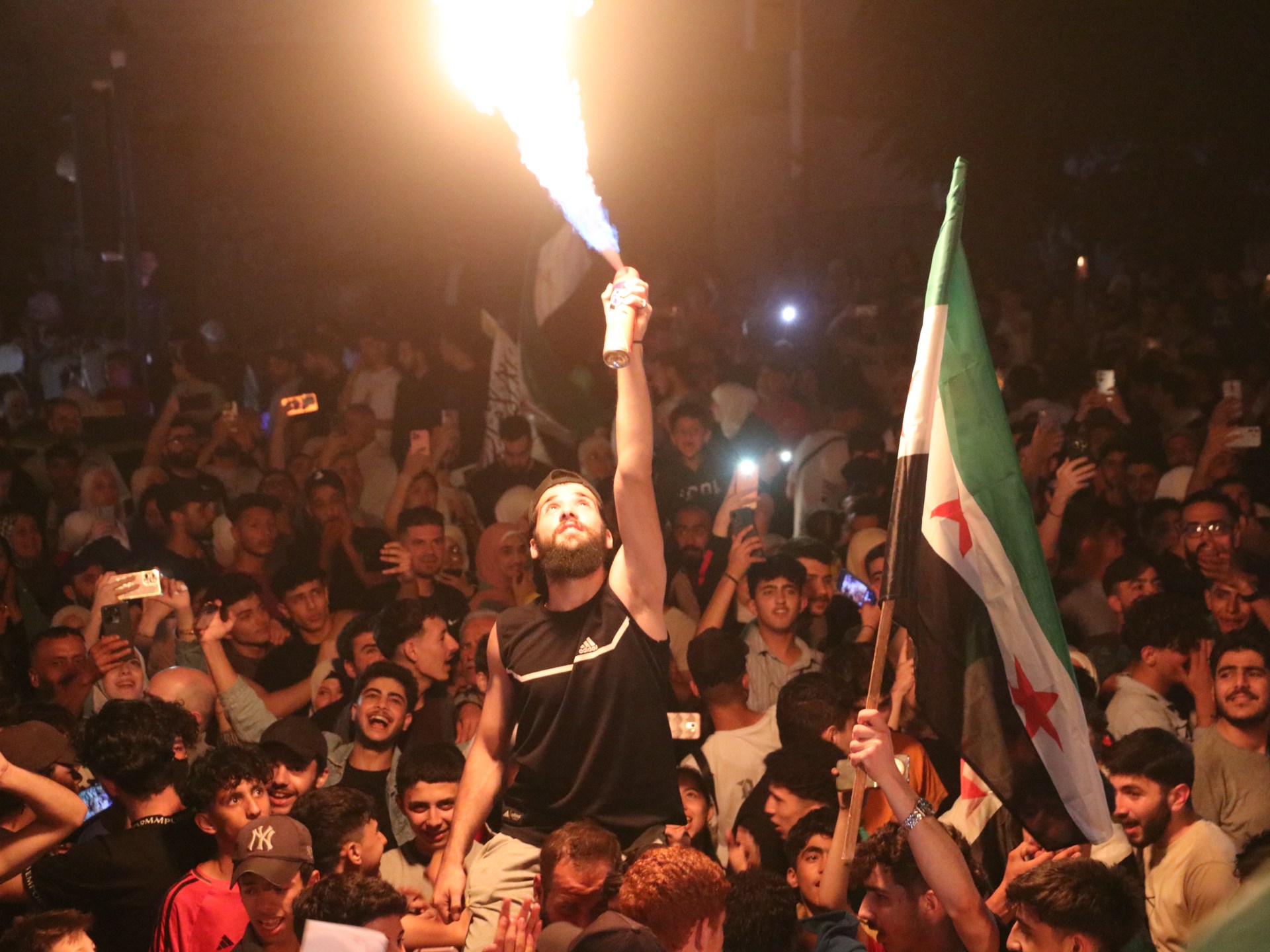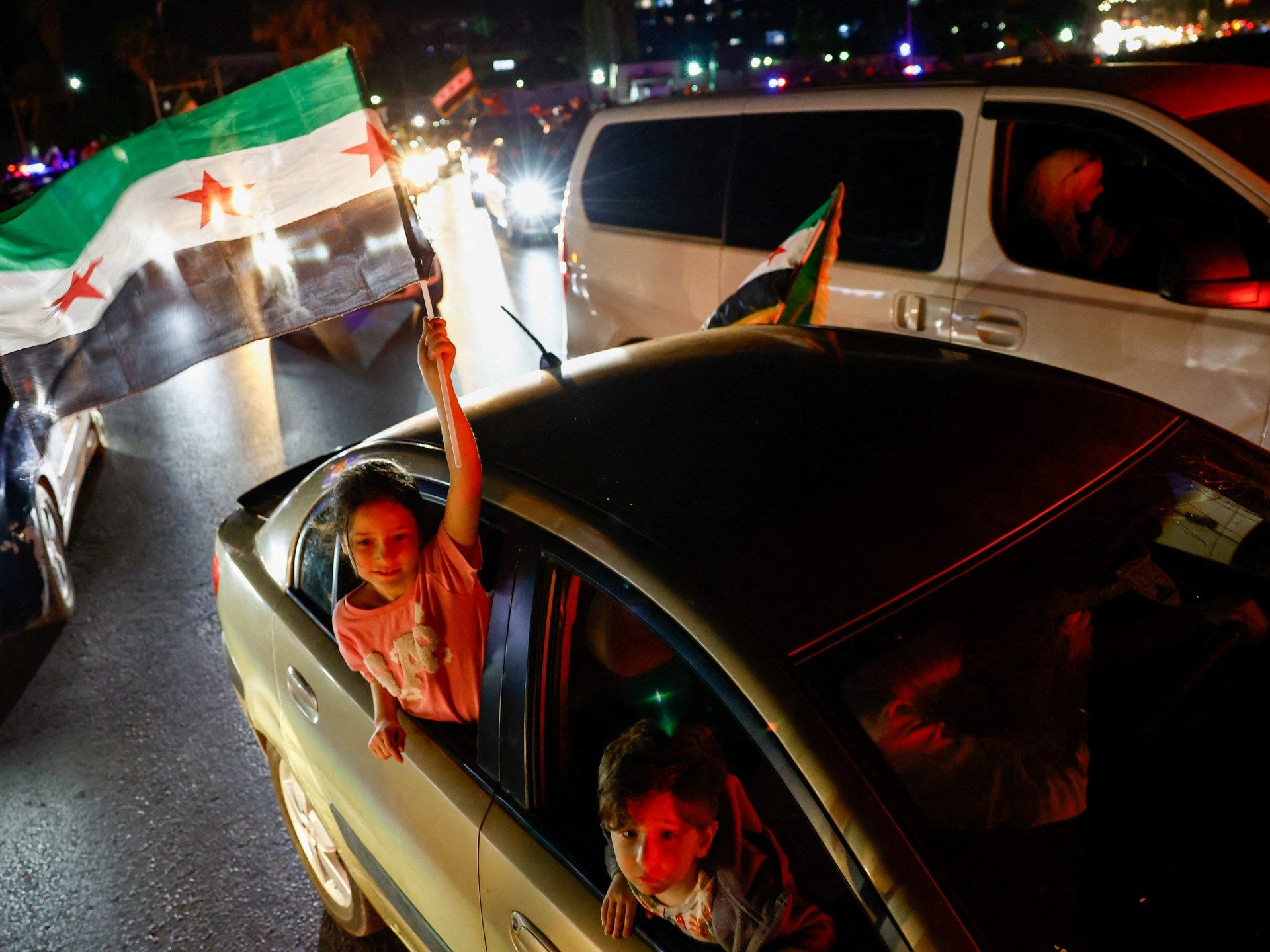What does the PKK’s disarming mean for its regional allies? | Syria’s War
When Abdullah Ocalan said his Kurdistan Workers’ Party, or PKK, should lay down its arms and disband after more than four decades of conflict with the Turkish state and tens of thousands of deaths, there was an instant look across the border to Syria.
Syria’s northeast is largely controlled by the Syrian Democratic Forces (SDF), a Kurdish-led military force Turkiye has repeatedly fought against over the past decade.
The SDF is led by the People’s Protection Units (YPG), which Turkiye views as a “terrorist” group and the Syrian branch of the PKK. The United States, however, has backed the YPG in Syria to fight against ISIL (ISIS).
Since the fall of Syrian President Bashar al-Assad in December, the SDF has been negotiating with the new Turkish-allied government in Damascus over what its future role in a newly unified Syria and as a military force will be and what kind of governance will extend to the northeast of the country.

No laying down of arms
The removal of the PKK from the equation will likely facilitate the SDF’s integration with Damascus, analysts told Al Jazeera.
“For the SDF, it makes it much easier to talk with the government in Damascus and also to de-escalate their relations with Turkey,” said Wladimir van Wilgenburg, an analyst of Kurdish politics based in Erbil, the capital of the autonomous Kurdish region of northern Iraq.
While the SDF rejects Turkiye’s assertions that it is the Syrian arm of the PKK, analysts said the groups have strong links.
While the PKK’s announcement that it would heed Ocalan’s call and disarm was welcomed by SDF leader Mazloum Abdi, he said his group would not disarm and Ocalan’s decision did not extend to Syria.

But this could give the group further incentives to bring its fighting force and governing structure – called the Autonomous Administration in North and East Syria (AANES) – under the umbrella of the new government in Damascus.
When reached for comment on Monday, an AANES spokesperson told Al Jazeera: “The autonomous administration is not concerned with the internal affairs of other countries.”
The SDF has clashed with Turkish-backed Syrian factions, including in the immediate days after the fall of al-Assad’s regime, and sustained attacks from Turkiye’s air force.
In December, the US negotiated a ceasefire between the SDF and the Turkish-backed Syrian National Army, which has since been incorporated into Syria’s new armed forces.
Abdi has been in discussions with the new Syrian government, led by Ahmed al-Sharaa, over how best to integrate the SDF into the post-Baathist Party security forces and govern Syria’s northeast.
Increased pressure to negotiate
The SDF has engaged in the talks with the pressure of an impending US troop withdrawal from northeast Syria.
Without a US presence and support, the SDF has feared it might be vulnerable to attacks from Turkiye or Turkish-backed factions in Syria.
But should the PKK’s decision to disarm bring a feeling of security to Turkiye along its border with Syria, analysts said the relations between the SDF and Turkiye would also likely improve.
“We know that Turkey’s hardline stance towards the SDF was very much linked to concerns over the PKK and not so much about the SDF being Kurdish-dominated,” Thomas Pierret, a Syria specialist and senior researcher at the Institute of Research and Study on the Arab and Islamic Worlds, told Al Jazeera.

This is evident by Turkiye’s relations with Masoud Barzani and his Kurdish Democratic Party in northern Iraq’s Kurdish region, Pierret said.
Of course, this new reality “doesn’t mean it will be easy”, according to Pierret. Under the agreement between Turkiye and the PKK, some fighters could be relocated to third countries – essentially sent into exile. There’s also the possibility some fighters may decide to make their way to northeast Syria, in which case, Pierret said, Turkiye could see the SDF as a haven for PKK fighters.
So Turkiye will keep a close eye on the SDF in Syria and the SDF’s negotiations with Damascus.
In the past, the Turkish military has launched drones, fired artillery and carried out air strikes against Kurdish fighters, including the SDF. And analysts said military options may still be on the table going forward.
“For now, they seem to be letting negotiations take their course,” Aron Lund, a fellow at Century International with a focus on Syria, told Al Jazeera. “And that’s probably related both to events in Syria but also to the PKK process.”
Beyond Syria
The PKK’s affiliates and allies are spread across regions of the Middle East where Kurds live.
Historically, the PKK has operated in Turkiye as well as northern Iraq. And their allies have operated in places where Kurds live in Syria and Iran. Their struggles have often opposed the national authorities in those places or sought self-determination or federalism.
One example is the Kurdistan Free Life Party, or PJAK, in Iran, which says its goal is to declare an autonomous Kurdish region in Iran.
“It’s unclear what will happen with the … PJAK because they also have a number of Iranian Kurdish fighters inside the PKK,” van Wildenburg said.
“It’s possible that they will continue as a political party and not as an armed group because they are already not doing much fighting against the Iranian state anyway.”
Analysts agree it is unclear whether the PKK’s allies will follow Ocalan’s lead and lay down their arms or, as is the case with the SDF in Syria, if they will view their own struggles as independent and make decisions on their own.

